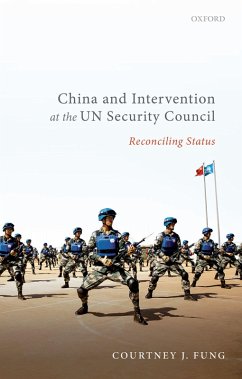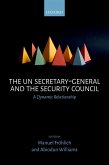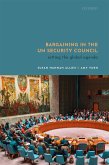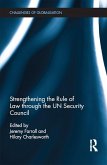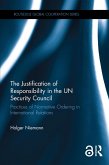What explains China's response to intervention at the UN Security Council? China and Intervention at the UN Security Council argues that status is an overlooked determinant in understanding its decisions, even in the apex cases that are shadowed by a public discourse calling for foreign-imposed regime change in Sudan, Libya, and Syria. It posits that China reconciles its status dilemma as it weighs decisions to intervene: seeking recognition from both its intervention peer groups of great powers and developing states. Understanding the impact and scope conditions of status answers why China has taken certain positions regarding intervention and how these positions were justified. Foreign policy behavior that complies with status, and related social factors like self-image and identity, means that China can select policy options bearing material costs. China and Intervention at the UN Security Council offers a rich study of Chinese foreign policy, going beyond works available in breadth and in depth. It draws on an extensive collection of data, including over two hundred interviews with UN officials and Chinese foreign policy elites, participant observation at UN Headquarters, and a dataset of Chinese-language analysis regarding foreign-imposed regime change and intervention. The book concludes with new perspectives on the malleability of China's core interests, insights about the application of status for cooperation and the implications of the status dilemma for rising powers.
Dieser Download kann aus rechtlichen Gründen nur mit Rechnungsadresse in A, B, BG, CY, CZ, D, DK, EW, E, FIN, F, GR, HR, H, IRL, I, LT, L, LR, M, NL, PL, P, R, S, SLO, SK ausgeliefert werden.

